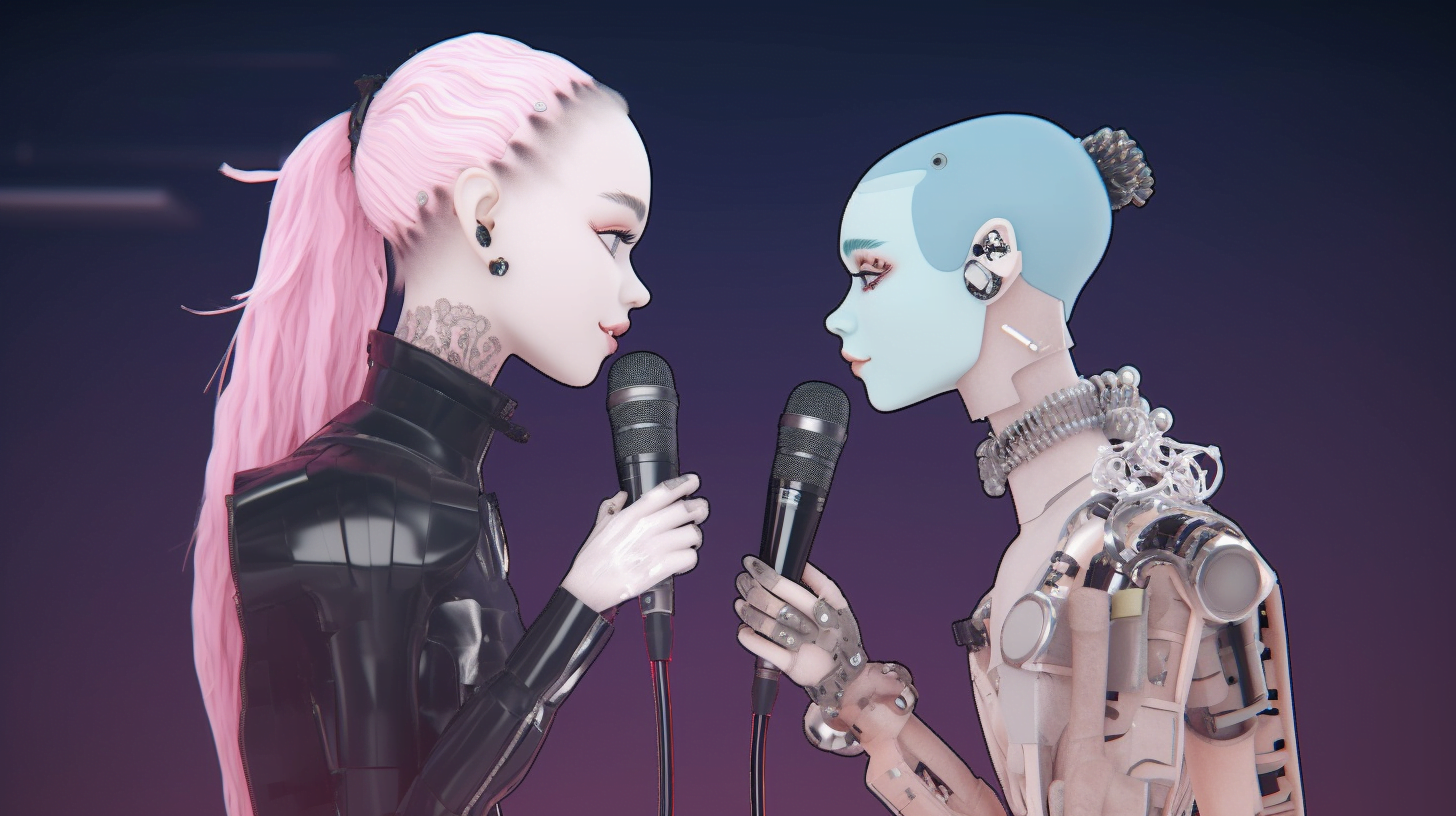Grimes has a suggestion for dealing with AI voice clones

Key Points
- Grimes doesn't mind her voice being used in AI-generated songs - as long as she gets paid.
- Grimes is weighing in on the copyright debate surrounding the successful AI voice clone "Heart on my Sleeve," which authentically mimics the voices of singers Drake and the Weeknd.
- After "Heart on my Sleeve," the music industry initially positioned itself against AI-generated music. Ultimately, AI fan music could bring more creative diversity and new revenue streams.
For Grimes, AI voice cloning is fine as long as she can benefit from it. And she may be on to something.
The popular Canadian singer made her proposal on Twitter: she would share 50 percent of her royalties for any successful AI song created with her voice.
Since she is not tied to a label or legally, she would be free to use her voice. Human artists would also be offered the same 50 percent deal.
"I think it's cool to be fused w a machine and I like the idea of open sourcing all art and killing copyright," Grimes writes.
The music industry gets the AI treatment
Grimes is weighing in on the pro-AI side of the copyright debate surrounding the song "Heart on my Sleeve," which was created last week by the TikTok account Ghostwriter977 using AI voice cloning technology based on singers Drake and "the Weeknd". The song quickly racked up millions of views on TikTok and other music and social platforms. Over the weekend, it was blocked by major platforms like Spotify and Apple Music.
Universal Music Group, which owns the rights, told the Financial Times that it has a "moral and commercial responsibility" to artists to stop unauthorized use of their music.
By that, the music company means both the creation of songs and the use of original songs to train AI systems. "We expect our platform partners will want to prevent their services from being used in ways that harm artists," says a UMG spokesperson.
https://www.youtube.com/watch?v=ftBIjY2FJkc
The music industry now has to deal with issues of AI copyright infringement just as much as the art, graphics, or text industries. One advantage of the music industry might be the relatively clear traceability, which is much less the case for visual art and almost nonexistent for text.
Is the music industry on the verge of its next revolution?
If artists open up their style, profile, and voice to the community, as Grimes suggests, and thus have a larger and more diverse output of their art, they could generate higher revenues from their assets.
It is even conceivable that original music could become more valuable, provided that the human musician remains important - as an idol, on stage, as a creative engine. If a commercial process for AI fan music could be established that would benefit the music industry, it probably wouldn't be averse to it.
In this scenario, AI music would be more of a problem for smaller and unknown artists. Their data would also be part of the training material, helping to optimize the systems, but their contribution would not be visible in the generated content. Here, the industry would likely have to think about a flat fee.
In any case, the music industry seems to be facing the next major upheaval after the launch of Napster. The success of "Heart on my Sleeve" is already showing the first cracks in the existing system.
AI News Without the Hype – Curated by Humans
As a THE DECODER subscriber, you get ad-free reading, our weekly AI newsletter, the exclusive "AI Radar" Frontier Report 6× per year, access to comments, and our complete archive.
Subscribe now